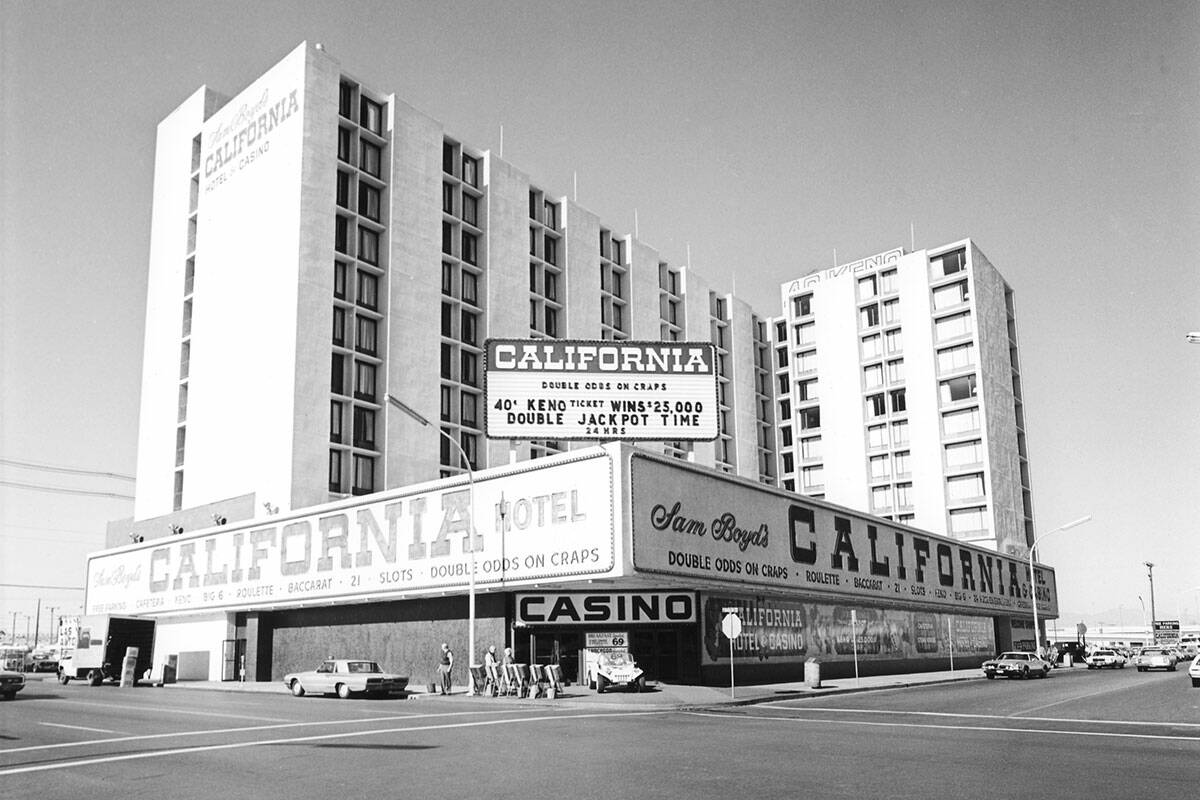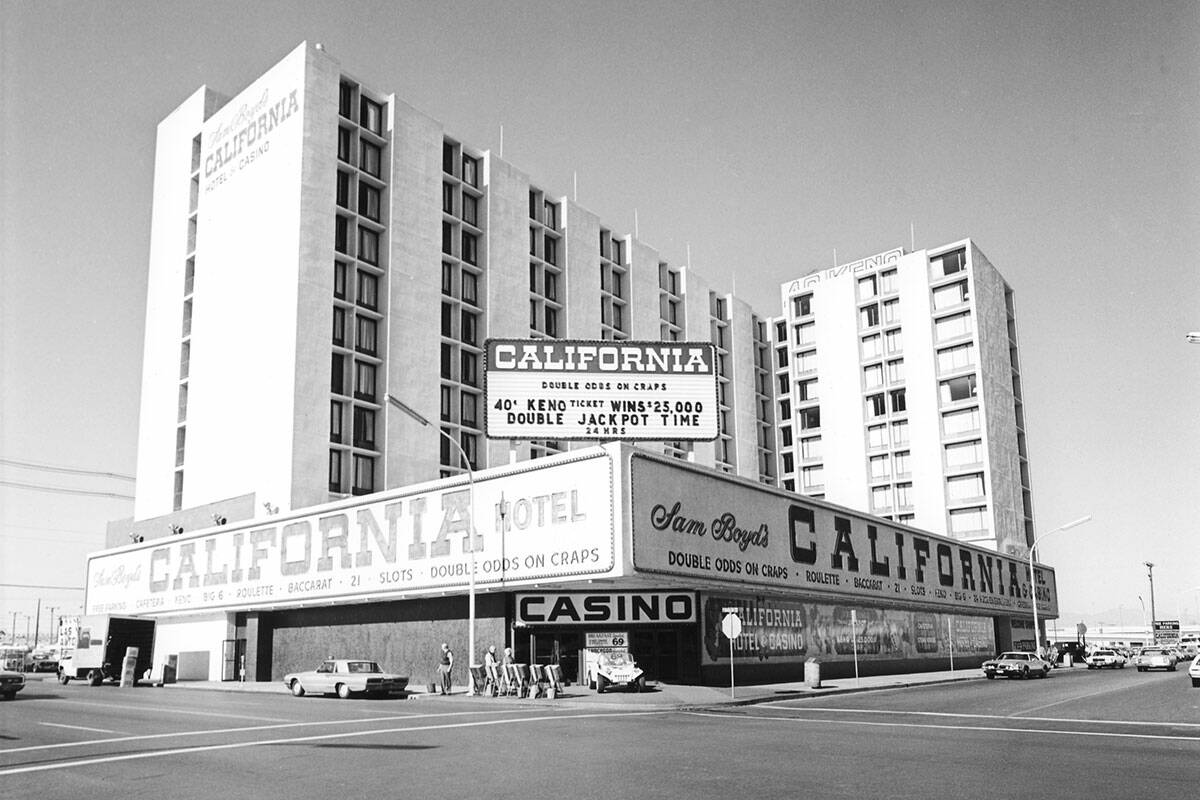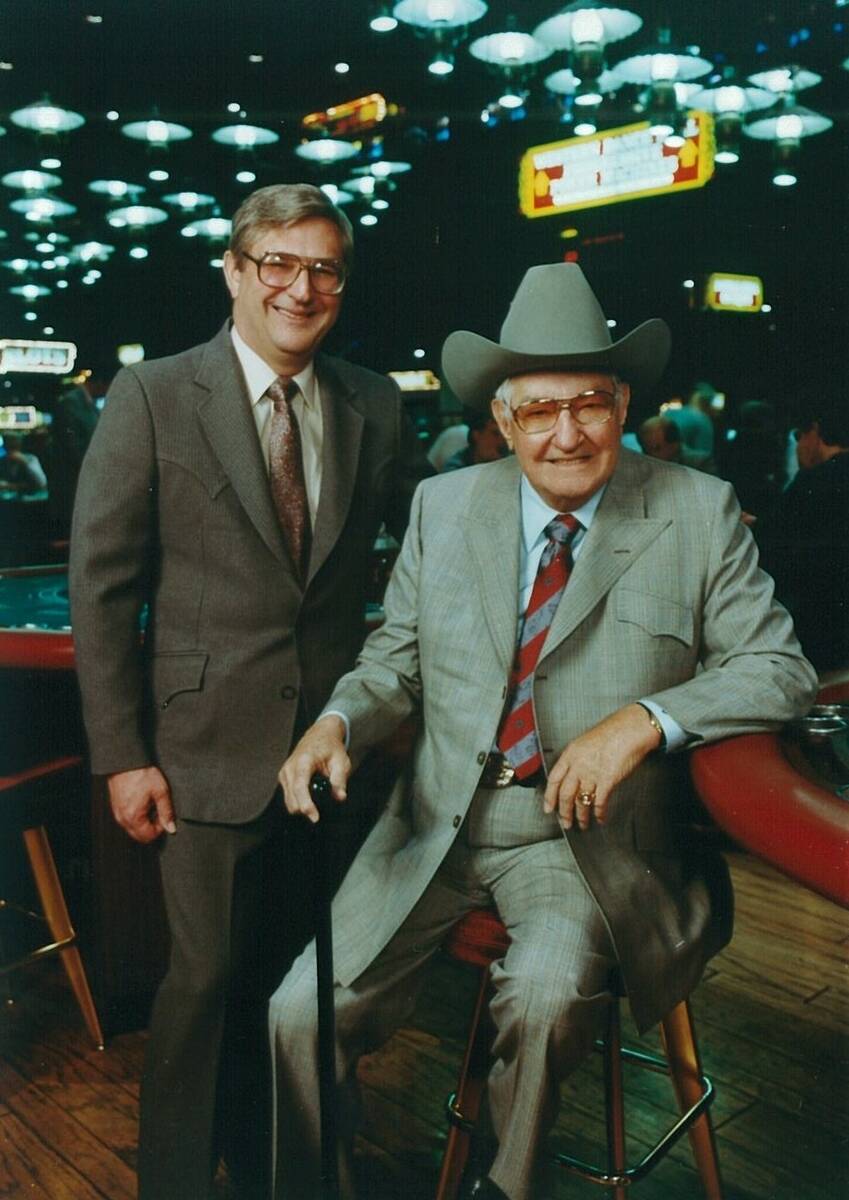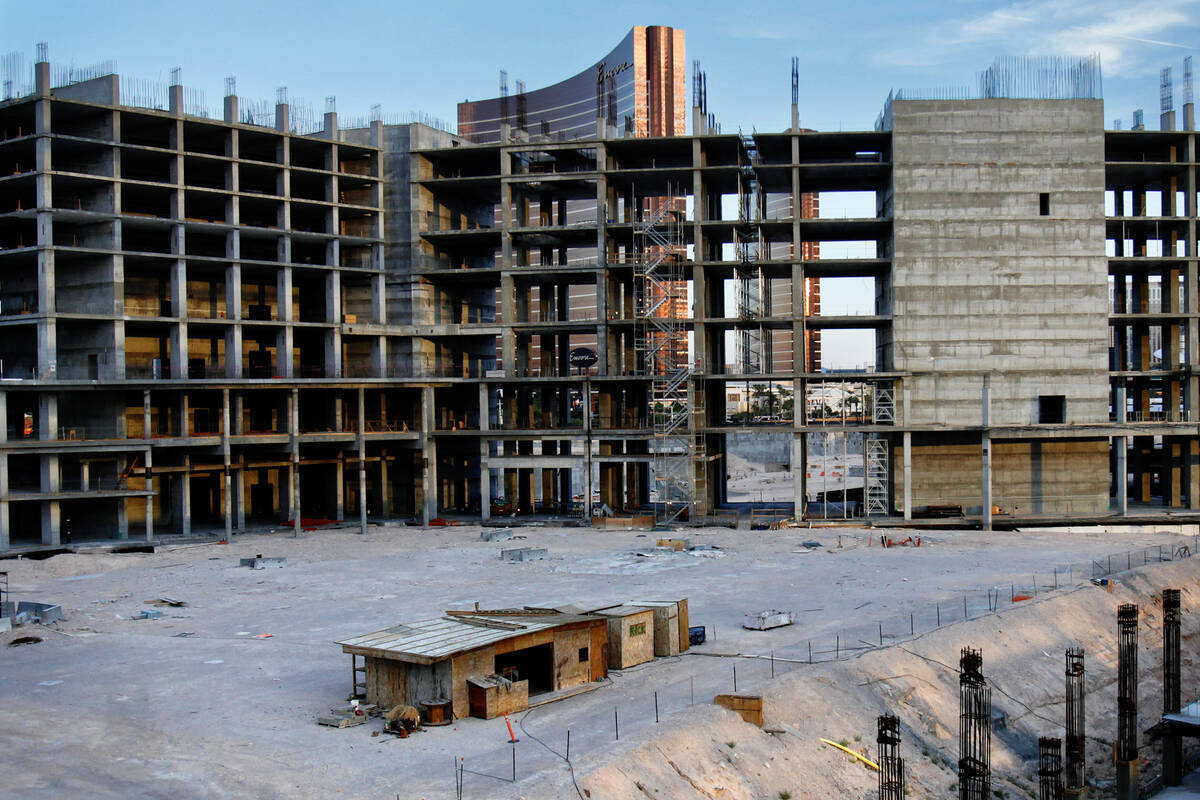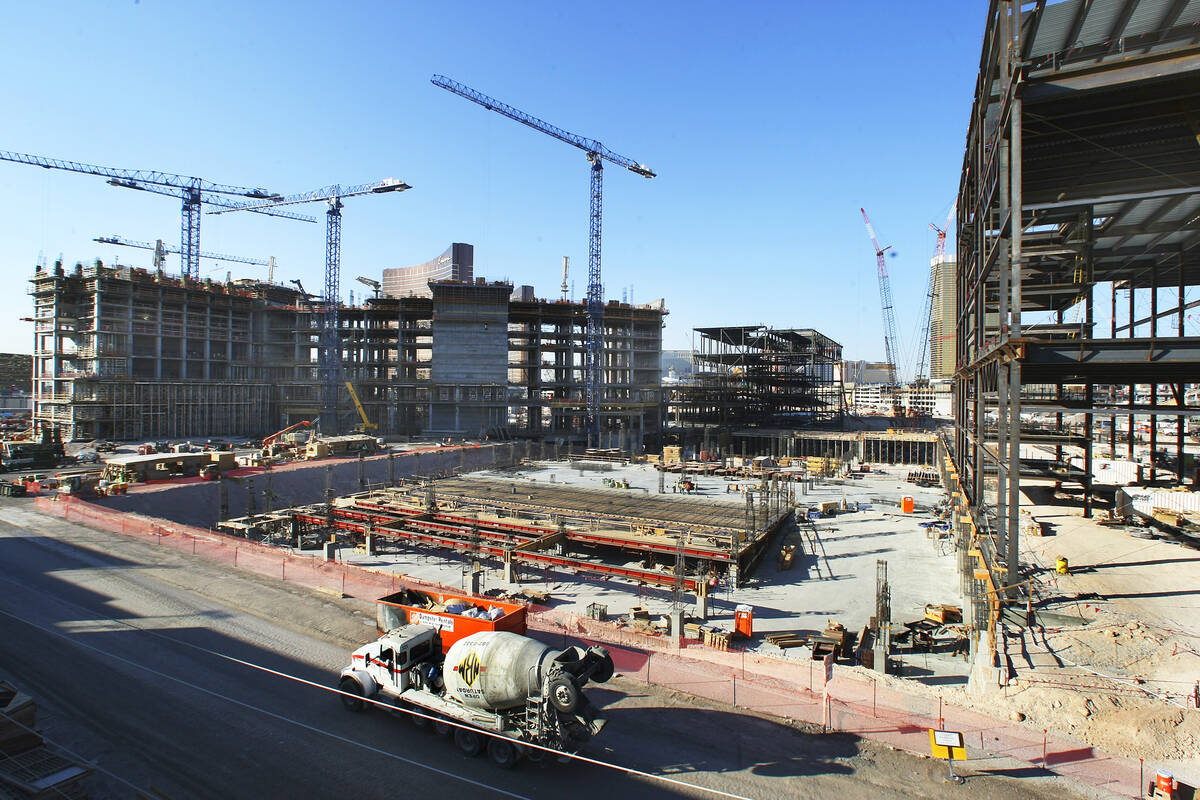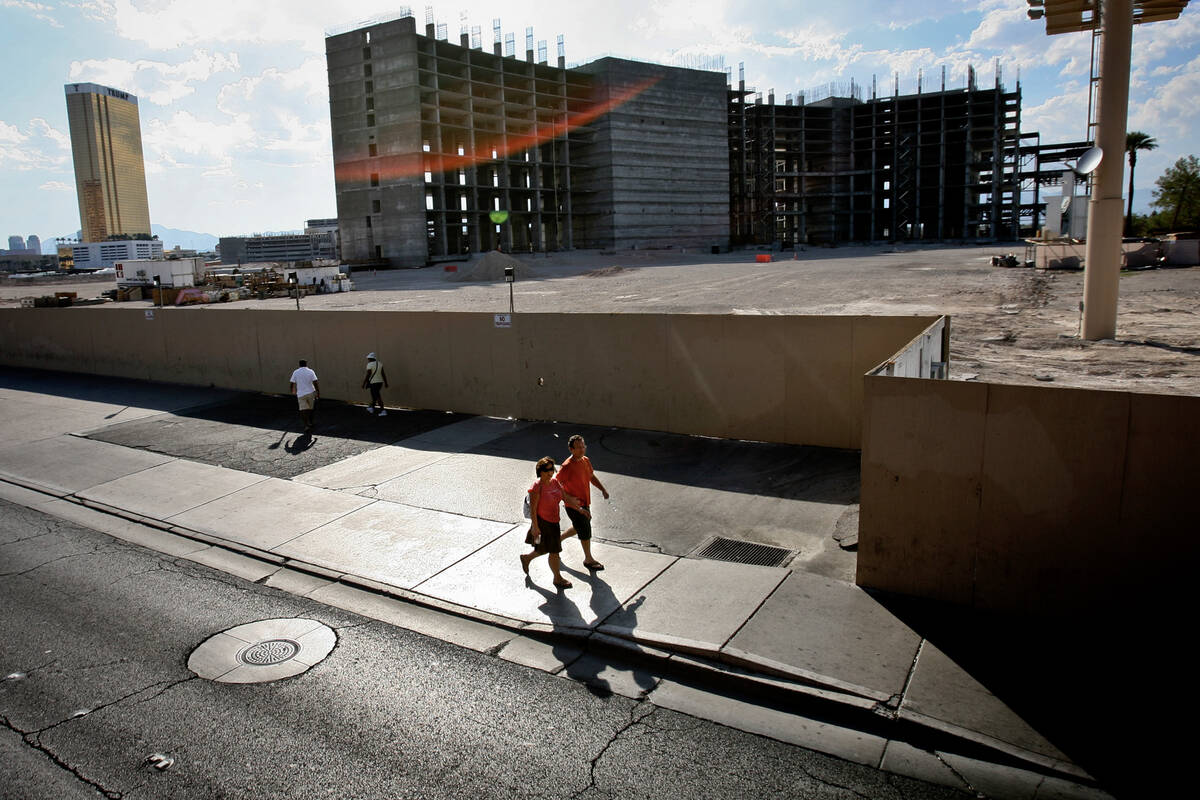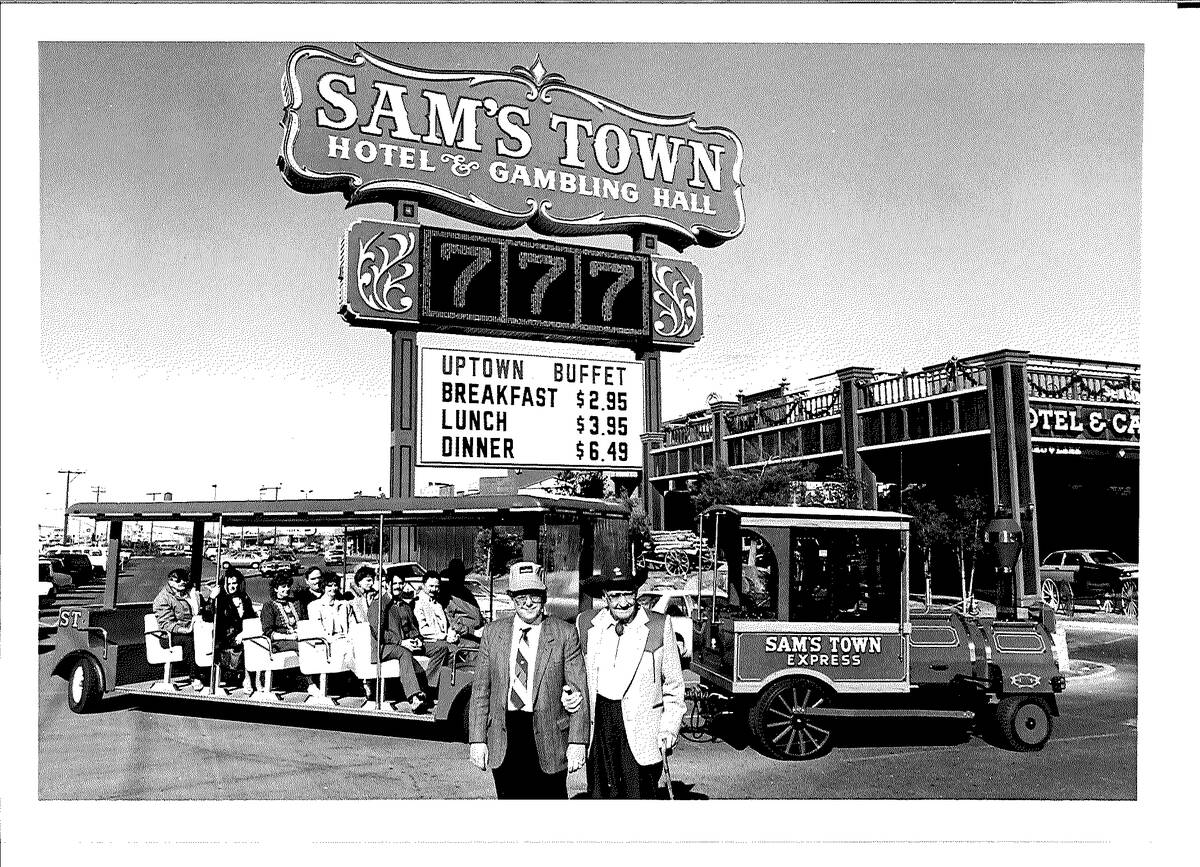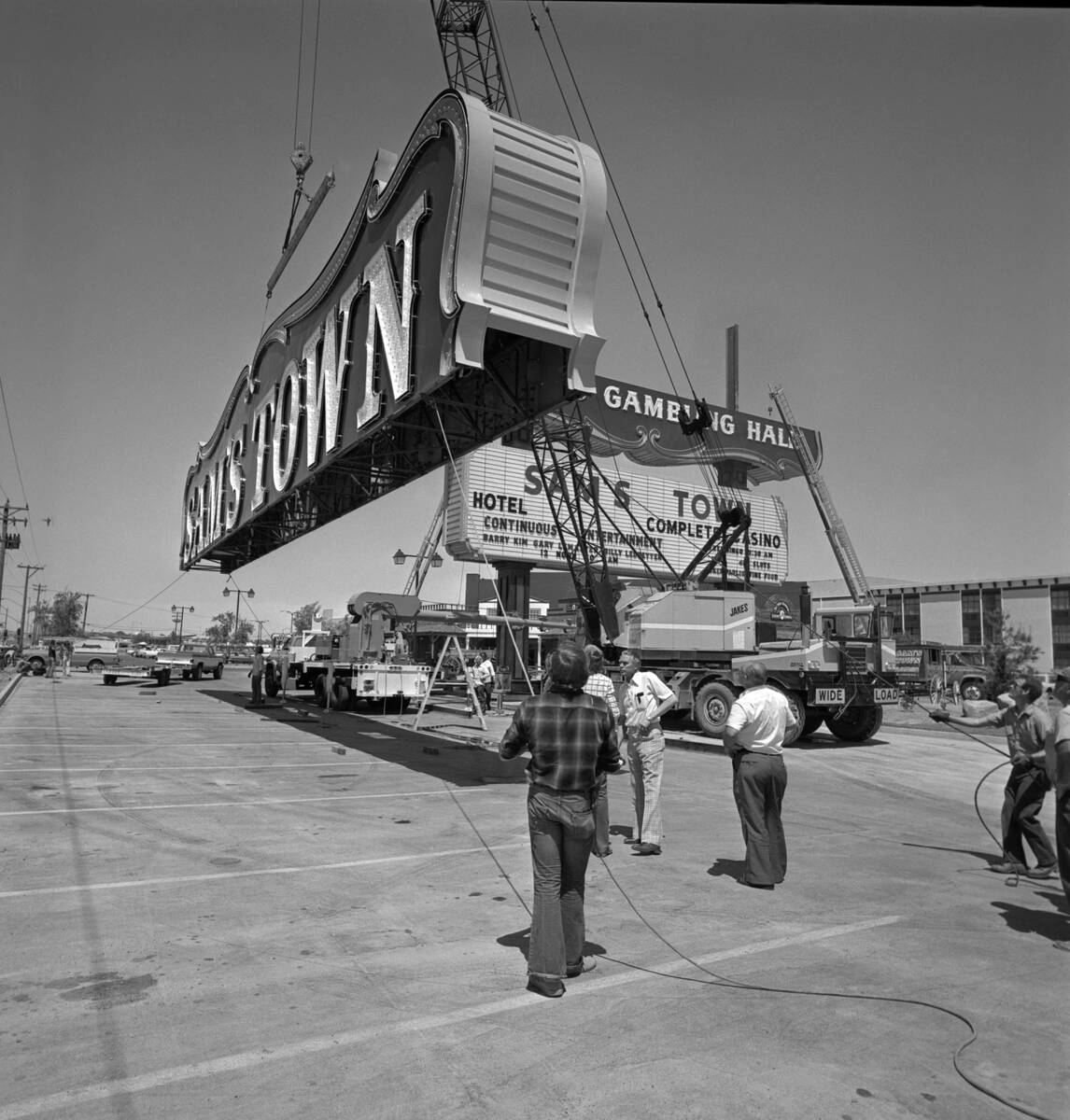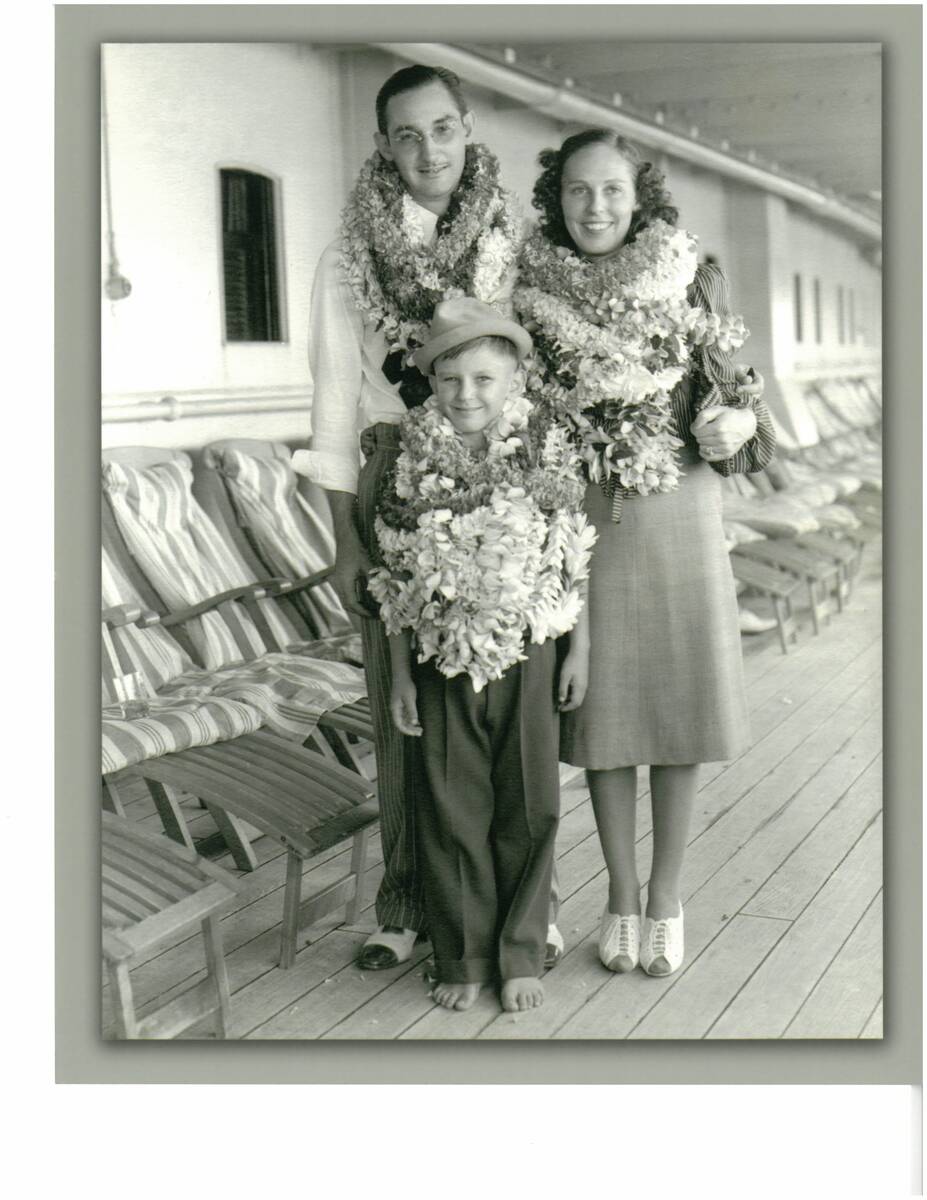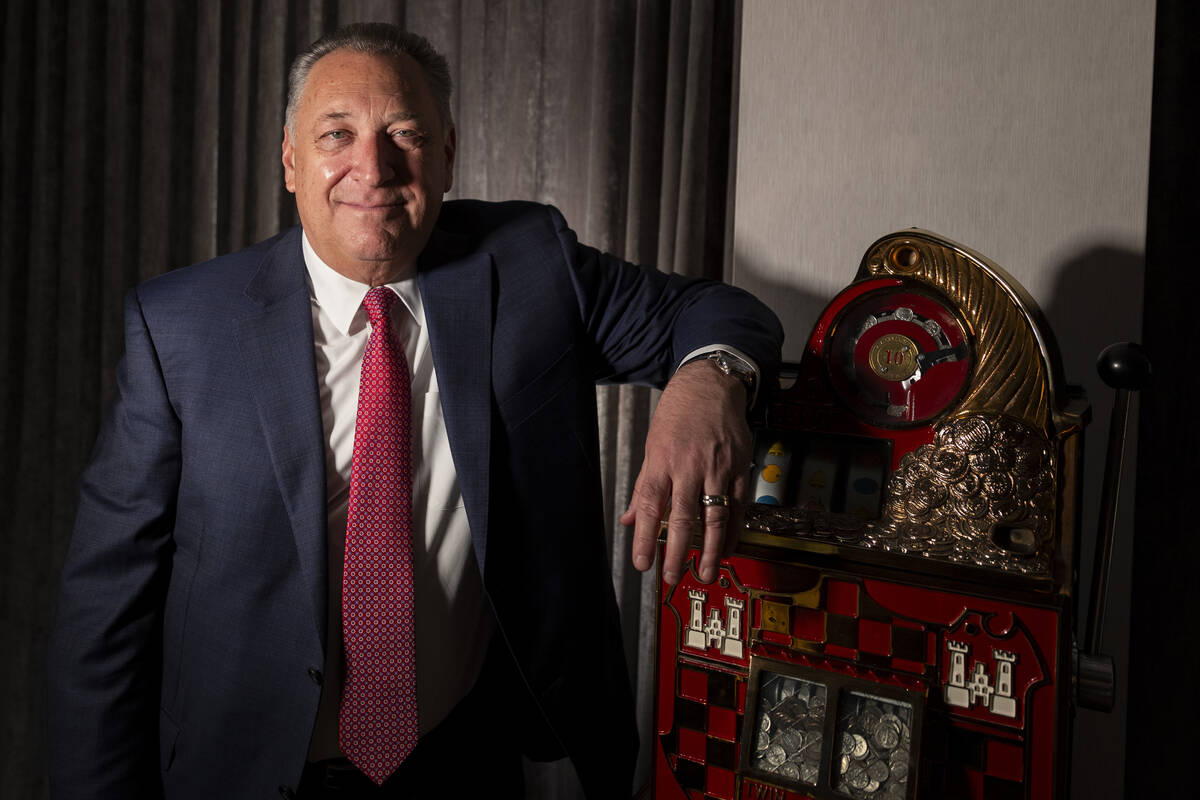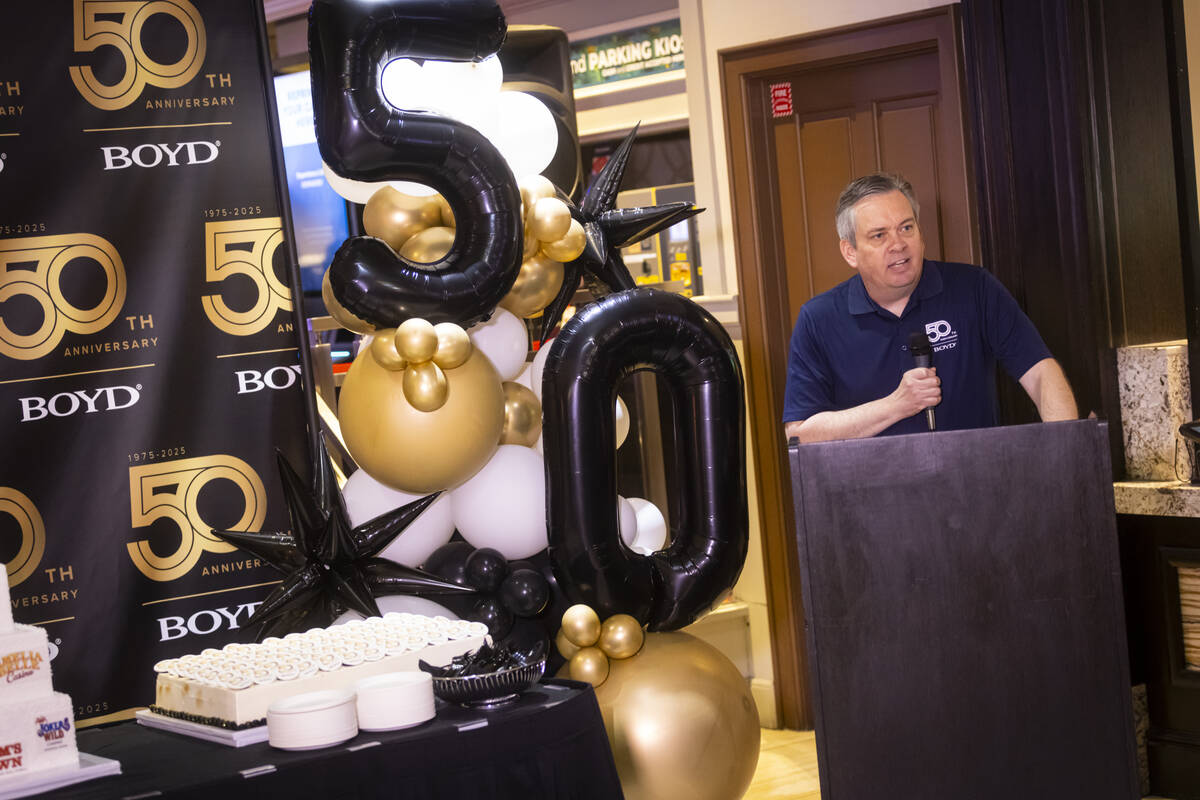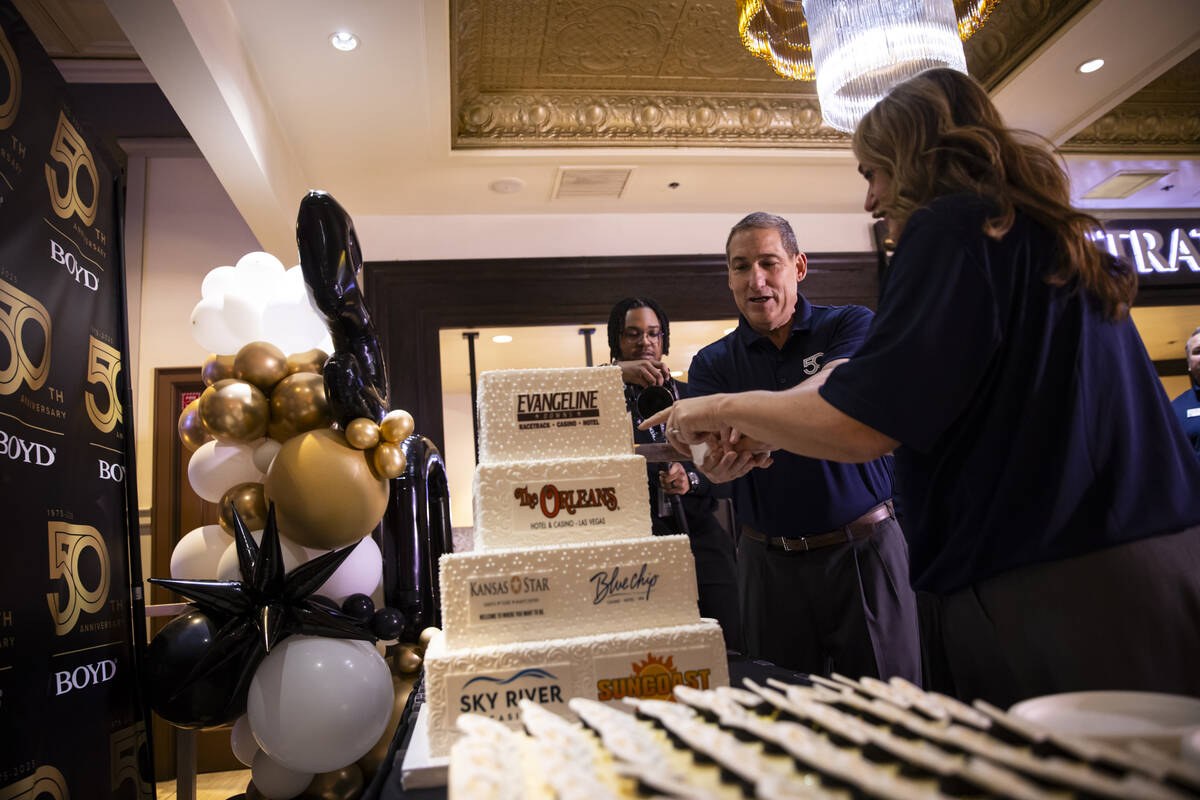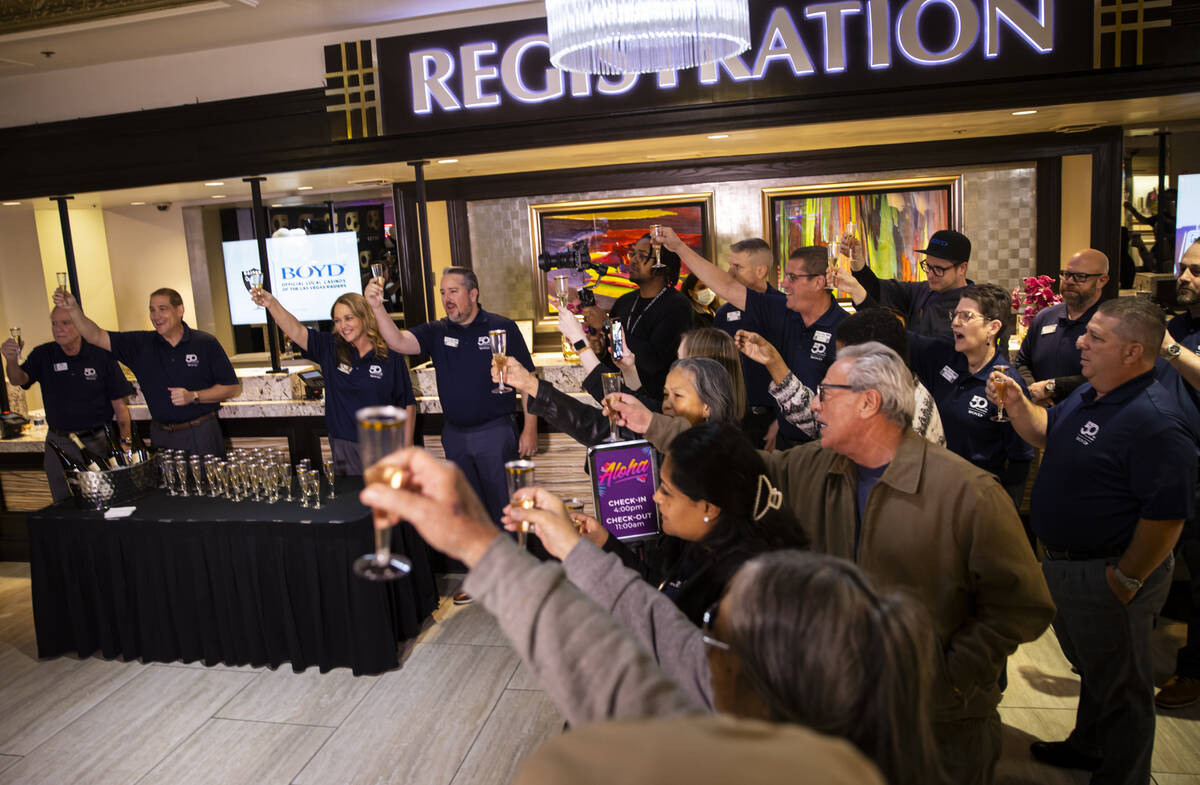Las Vegas casino company with ties to Hawaii celebrates 50 years
A Las Vegas gaming company with connections spanning from Hawaii to New Jersey celebrates its 50th anniversary of the opening of a downtown casino.
The New Year’s Day opening of The California hotel-casino 50 years ago marked the beginning of one of Southern Nevada’s longest running gaming businesses. Boyd Gaming started as the operators of a downtown spot that was hot with Hawaiian tourists. It’s since grown into a national gaming name with operations across the country and on mobile platforms — all while maintaining a local reputation of integrity in the company’s hometown.
“Our reputation, our integrity, is everything,” CEO Keith Smith said in a recent interview with the Review-Journal. “It has gotten us deals. It has helped us working with state regulators because they trust us, and they know we will always do the right thing.”
Boyds’ beginnings
Father and son duo Sam and Bill Boyd founded the Boyd Group shortly before their downtown venture opened. But it was far from their first foray into the industry – the family already owned Eldorado Casino in Henderson (now The Pass) and the pair were investors at the Union Plaza — now simply known as the Plaza. Sam Boyd had experience as a general manager at the Mint, among other casino jobs since he moved his family from Los Angeles to Las Vegas in 1941.
The Cal wasn’t an immediate success. Company leaders now suspect its location, one block off Fremont Street, and a generally challenging economy at the time figured into that. So Sam Boyd had to be creative. He called upon his connections in Hawaii – a place the Boyd family lived for five years beginning in 1935, where he worked for bingo parlors.
The marketing efforts were successful, leading to a 50-year reputation as a favorite travel spot for Hawaiians and one of the reasons for Las Vegas’ reputation as “the ninth island” and the second-largest Native Hawaiian population outside of Honolulu. David Strow, vice president of corporate communications, said their local knowledge was evident when they’d go on business trips with cases of Coors beer – then a favorite, though rare, beer in Hawaii.
“They put it in the trunk of their car when they were going around to travel agent meetings, and they’d come in and each one of them would have a case of Coors beer on their shoulders,” Strow said. “That was their gift to them, but also that was a reflection of how well they knew the market and what they were looking for.”
Success at The Cal soon led to another venture for Boyd Gaming. Bill Boyd, regularly driving on what became the Boulder Strip between downtown Las Vegas and downtown Henderson for their two casinos, noticed a land parcel. He convinced his father to purchase the land and build a hotel-casino catered to Las Vegas residents – a business model that has since been repeated in dozens of iterations.
“Now, as the story goes, most of their contemporaries thought they were nuts,” Smith said. “Most of their contemporaries thought they were going to lose The Cal and everything else that they had but Sam and Bill were committed. They had a conviction that this was going to work.”
Growing onto the Strip and into the country
Several years later came another major moment for the company. Dealing with the fallout of mob involvement and a skimming scandal, the state of Nevada selected Boyd to operate Stardust resort-casino in 1983.
“When the state forced out the people who were either involved in the skimming or had been running it while it was going on, they asked Sam and Bill Boyd to take it over because they knew they were clean,” UNLV history professor Michael Green said.
The Boyds “felt an obligation” to run the property so 2,000 jobs weren’t lost, Strow said. They soon realized it was more profitable than expected without the books skimming. Two years later, Boyd acquired Stardust and the Fremont hotel-casino in a package deal that cemented the company on a longer path to growth.
Smith, chief executive since 2008, joined the company in 1990. He said the company’s integrity and reputation as a small company with a family feel made it a desirable place to work. Three years later, the company went public on the New York Stock Exchange, following Sam Boyd’s death and Bill’s move to the chief executive role.
“As the industry started to grow outside of Las Vegas, Bill was wise enough to know that in order to have the capital to do that, we had go from being a private company to a public company to access the capital markets, to be able to expand,” Smith said. “You have to give them, once again, credit for having great vision to be able to say, ‘if we want to play along here, we’re going to have to look different as a company.’”
Indeed, expansion occurred not long after. It opened three regional casinos between May and September 1994. In the following decade, the portfolio grew from four properties in Southern Nevada to eight hotel-casino properties, a racetrack and a Hawaiian travel agency. That included the major development of Borgata resort-casino, a joint venture with now-MGM Resorts International that opened in 2003 as Atlantic City’s first luxury resort and first gaming property in 13 years. (The company sold its equity stake in 2016.)
The biggest acquisition to date came in 2004, when Boyd acquired Coast Casinos Inc. for $1.3 billion. The merger transaction with casino magnate Michael Gaughan’s company added four Las Vegas casinos to Boyd’s portfolio and led them to oversee the development of South Point – first known as South Coast in 2005 before the company sold it to Gaughan as the sole owner in October 2006.
“Bill was very, very aggressive about getting the company to grow beyond its roots in Nevada, because they felt that that was the future frontier for the industry,” Strow said.
Inspired by the success of their luxury project in Atlantic City, Smith said Boyd executives saw an opportunity at the site of the Stardust Casino. By 2007, the historic property was imploded to clear way for a multibillion-dollar resort complex called Echelon.
But the Great Recession soon affected plans. Business partners could not obtain financing, delaying and eventually suspending construction. Smith said they had invested about $1 billion in the project.
Outsiders look back on the company’s decision to abandon the project as a pivotal choice in the company’s history.
“The Echelon decision was probably most important,” Green said. “Whether they would have weathered it, we can’t know. But they were certainly conscious of the danger.”
Smith said the company’s conservative approach to Echelon was criticized at the time. Boyd ultimately sold the 87-acre parcel for $350 million in cash to Genting Group, who built Resorts World in 2021.
“We simply were not going to let a single project define who we were,” Smith said. “We had 25 years of operating history before that. We knew we had a long future ahead of us, and we had to do the right things. So ultimately, we just shut down the entire project.”
Looking ahead
Smith said re-strategizing the company in the post-Recession world was instead about focusing on opportunities to expand into new regional markets or other places it could be competitive. That included the 2018 strategic partnership deal with FanDuel that resulted in a 5 percent stake in one of the leading national sports betting brands.
Boyd’s future, Smith said, is focused on continued growth. He hopes to see wider adoption of online casinos beyond the handful of states that permit it, compared to 38 that legalized sports betting since 2018. He also suspects the company “will have more assets than we have today,” but declined to specify what or where they could be.
Smith said the company is focused on a disciplined but strategically diverse approach for future growth.
“The most successful operators, 10 years from now, will have a strong online casino presence, online sports betting, and have strong brick-and-mortar or land-based casinos,” Smith said. “The two work together.”
Contact McKenna Ross at mross@reviewjournal.com. Follow @mckenna_ross_ on X.



